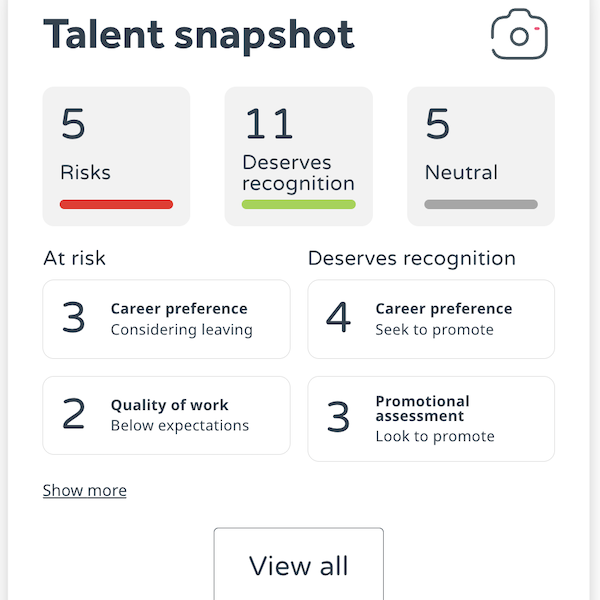What’s your perception of a good work ethic? Unfortunately, many still think it means overworking, staying late until the job is done, skipping lunch and answering ‘urgent’ calls at the weekend. When what it should mean is working to a set of moral principles like integrity, responsibility, discipline and a sense of teamwork. All qualities that also make us more efficient and leave the office on time.
This warped view on what it means to have a ‘good work ethic’ rolls out across the business to cultivate an ‘overwork culture’ justified as an industry standard or encouraged as the best route to promotion. More time equals more work right? Not really. We take a dive into employee research and survey data to reveal five reasons why overworked employees are less productive.
1. Longer hours means less sleep and more mistakes
If employees are working longer hours then they are going to struggle to switch off, which ultimately leads to less sleep and tired employees likely to make more mistakes. Author of Sleep: A Business Case for Sleep Time and wellness director for MetLife Dr. Leena Johns explains:
“Someone awake for 17 hours straight has the performance ability of a person with a 0.05 percent blood alcohol level—which is legally drunk in many jurisdictions. That’s not a condition you want your employees to be in. Even if they look busy and are in the office for a long time, they are not going to get results without making mistakes along the way.”
Mistakes that could cost the business and the employee alike, whether that is placing a decimal in the wrong place on an invoice or breaking their leg rushing to that meeting.
2. Working lunches lead to isolation from the team
60% of employees eat alone at their desk, which ultimately means they are spending less time connecting with their colleagues. While that may not seem like a big deal, a lack of internal communication or team bonding can have a negative impact on staff performance. If their performance is hindered, then no amount of time will help them meet their full potential within the business.
According to a Gallup Poll having a friend at work leads to greater performance with 43% more likely to receive recognition and praise for their work in the last week. In a Forbes article Kaytie Zimmerman also said:
“Millennials are often criticized for blurring the lines between work relationship and personal relationships. They are the first to organize a happy hour after work for their peers. While they’re often criticized for this, it turns out if they manage to develop close friendships at work, their productivity and performance improve.”
3. Busy people have bad habits that result in bad health
If employees are overworked, then they are also likely to fall into bad habits. Whether that is grabbing one to many coffees, snacking on junk food, turning to alcohol to wind down in the evenings or sitting down for longer. They are also likely to have less time with their friends or family. All of these factors can lead to stress and health problems. Not convinced? Here’s some compelling statistics to bring home the point:
- Employees working a 55-hour week face a 33% increased risk of stroke than those working a 35 to 40-hour week (University College London)
- Overworked employees report more health problems, and as a direct consequence are less productive and use more sick days (University College London)
- Researchers found that working 61 to 70 hours a week increased the risk of coronary heart disease by 42%, and working 71 to 80 hours increased it by 63% (Federal Centers for Disease Control and Prevention)
This is not good for your employees or your business, because it will also result in an increase in absenteeism.
4. Overworked employees are too overwhelmed to focus
Having conducted employee surveys for thousands of employers we know that staff feel overwhelmed. The top reasons cited was a feeling that there is no time to stop and rest for a few moments, either because:
- The company doesn’t expect it
- There is no-where to go
- There is just too much to do
The same employees revealed that they only have sufficient ‘headspace’ to do their job well 51% of the time. HR Daily Advisor also recently found that 85% of employees said they felt overwhelmed, extremely down or were experiencing negative feelings that interfered with their ability to work.
Allowing employees to continue to be overworked and overwhelmed will lead to an increase of presenteeism in the workplace, whereby employees are present but not productive, which won’t do either of you any favours.
5. Unhappy employees are more likely to leave
Employees of course won’t necessarily be conscious of all of the above reasons they are feeling unhappy at work. They will however be more likely to look for another job. Many businesses are offering more flexible hours and working cultures to attract new talent, so the chances of losing your staff are now even higher. In this instance an ‘overwork culture’ is not only counterproductive for your business, it could also be costly – over double their annual salary to be more precise. In a recent article, Content and Community Manager at Bonusly George Dickson explained:
“Turnover is expensive, no matter what type of position an employee holds. Estimates on the true cost of losing employees vary based on multiple factors, but recent research found that the cost of replacing highly-trained employees and executives can easily exceed double their annual salary.”
Shift your focus from time served to employee wellbeing
“A happy employee is a loyal and productive employee, and the corporate world should aim for a workplace that maximises employee happiness, which will ultimately lead to better business performance.” Toshinobu Kasai, Managing Director and Country Head, JLL
While the business may not always expressly ask employees to work longer hours, there is a close link between staff feeling overwhelmed by their workload and the cultivation of an ‘overwork culture’. If an employee is overwhelmed then they are unhappy and less likely to be efficient. Conversely, happy employees are more likely to put more effort into their work and become more efficient.
So, if you want to improve productivity then start thinking about what your employees need to thrive in the workplace. While that will be unique for every employee and only discovered when you truly listen to their needs, based on our survey data we can tell you that the majority of employees want to:
- Feel appreciated and valued
- Gain a deeper understanding of their role in the business
- Achieve a deeper social connection with colleagues
- Have a healthy work life balance
What may seem logical isn’t always successful. Rather than focusing on the clock, consider how a more flexible approach to the working day could benefit your employees and begin exploring how you can get the best out of them when they are in the office.
The formula to optimal productivity for any business is unique. We’ve designed our employee survey to not only gain feedback from staff but also uncover subconscious factors that will impact bottom line objectives like improving productivity but also improving employee engagement and staff retention.
About WeThrive
Employee Engagement, Evolved
WeThrive is the agile employee engagement platform that uncovers how your people truly feel, enabling managers to create highly effective teams, increase employee retention and employee wellbeing and deliver better business results.
At organisation, team or individual level WeThive’s unique 4C model leverages the latest psychological understanding to quickly and easily deliver insights, actions and learning content to help your managers become better managers, creating a high performance culture and improving business results. UK based, WeThrive has an average 91% employee engagement survey completion rate and to date has made over 5000 company-wide recommendations.


